Search
Search Results
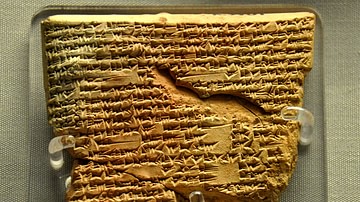
Article
Sargon and Ur-Zababa
Sargon and Ur-Zababa is a Sumerian poem, date of composition unknown, relating the rise to power of Sargon of Akkad (r. 2334-2279 BCE), founder of the Akkadian Empire. The work is classified as a Mesopotamian folktale, relying on motifs such...
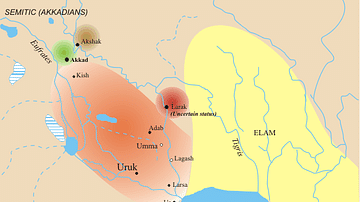
Definition
Uruk
Uruk was one of the most important cities (at one time, the most important) in ancient Mesopotamia. According to the Sumerian King List, it was founded by King Enmerkar c. 4500 BCE. Uruk is best known as the birthplace of writing c. 3200...
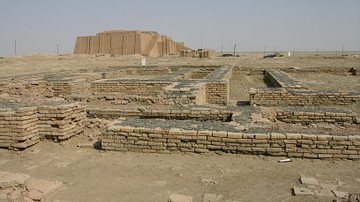
Definition
Ur
Ur was a city in the region of Sumer, southern Mesopotamia, and its ruins lie in what is modern-day Tell el-Muqayyar, Iraq. According to biblical tradition, the city is named after the man who founded the first settlement there, Ur, though...

Definition
Mesopotamian Government
Ancient Mesopotamian government was based on the understanding that human beings were created to help and serve the gods. The high priest, king, assembly of elders, governors, and any other officials were recognized as stewards chosen by...
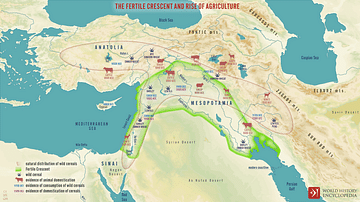
Definition
Fertile Crescent
The Fertile Crescent, often called the "Cradle of Civilization", is the region in the Middle East which curves, like a quarter-moon shape, from the Persian Gulf, through modern-day southern Iraq, Syria, Lebanon, Jordan, Israel and northern...
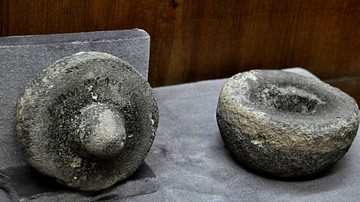
Definition
Mesopotamian Science and Technology
Mesopotamian science and technology developed during the Uruk Period (4100-2900 BCE) and Early Dynastic Period (2900-1750 BCE) of the Sumerian culture of southern Mesopotamia. The foundation of future Mesopotamian advances in scientific/technological...
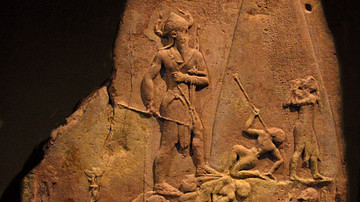
Definition
Naram-Sin
Naram-Sin (r. 2261-2224 BCE) was the last great king of the Akkadian Empire and grandson of Sargon the Great (r. 2334-2279 BCE) who founded the empire. He is considered the most important Akkadian king after Sargon (or, according to some...
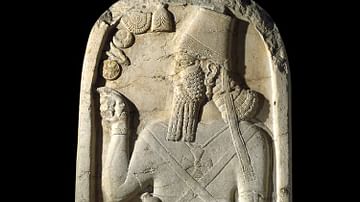
Definition
Anu
Anu (also known as An) is an early Mesopotamian sky god who was later viewed as the Father of the Gods and ruler of the heavens, a position which then passed to his son Enlil. He is the son of the couple Anshar and Kishar (heaven and earth...
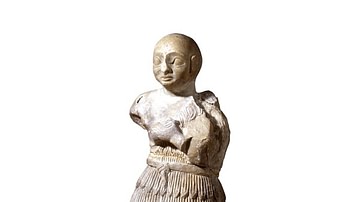
Definition
Early Dynastic Period (Mesopotamia)
The Early Dynastic Period of Mesopotamia is the modern-day archaeological term for the era in Mesopotamian history – 2900-2334 BCE – during which some of the most significant cultural advances were made including the rise of the cities, the...
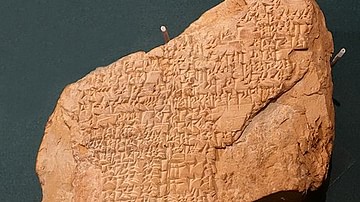
Image
Tablet of the Poem Inanna and Ebih
Tablet of the poem Inanna and Ebih, also known as Inanna's Battle with the Mountain and Goddess of the Fearsome Powers, attributed to the poet/priestess Enheduanna (l. 2285-2250 BCE), exhibited in the Oriental Institute Museum, Chicago.